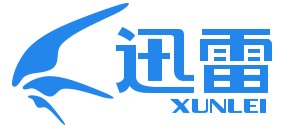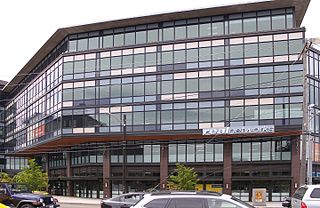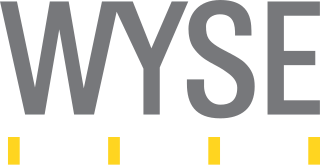
Citrix Systems, Inc. is an American multinational cloud computing and virtualization technology company that provides server, application and desktop virtualization, networking, software as a service (SaaS), and cloud computing technologies. Citrix claims that their products are used by over 400,000 clients worldwide, including 99% of the Fortune 100 and 98% of the Fortune 500.

Trend Micro Inc. is an American-Japanese cyber security software company. The company has globally dispersed R&D in 16 locations across every continent excluding Antarctica. The company develops enterprise security software for servers, containers, & cloud computing environments, networks, and end points. Its cloud and virtualization security products provide automated security for customers of VMware, Amazon AWS, Microsoft Azure, and Google Cloud Platform.
M-learning, or mobile learning, is a form of distance education where learners use portable devices such as mobile phones to learn anywhere and anytime. The portability that mobile devices provide allows for learning anywhere, hence the term "mobile" in "mobile learning." M-learning devices include computers, MP3 players, mobile phones, and tablets. M-learning can be an important part of informal learning.
Microsoft is a multinational computer technology corporation. Microsoft was founded on April 4, 1975, by Bill Gates and Paul Allen in Albuquerque, New Mexico. Its current best-selling products are the Microsoft Windows operating system; Microsoft Office, a suite of productivity software; Xbox, a line of entertainment of games, music, and video; Bing, a line of search engines; and Microsoft Azure, a cloud services platform.
Microsoft engineering groups are the operating divisions of Microsoft. Starting in April 2002, Microsoft organised itself into seven groups, each an independent financial entity. In September 2005, Microsoft announced a reorganization of its then seven groups into three. In July 2013, Microsoft announced another reorganization into five engineering groups and six corporate affairs groups. A year later, in June 2015, Microsoft reformed into three engineering groups. In September 2016, a new group was created to focus on artificial intelligence and research. On March 29, 2018, a new structure merged all of these into three.

Xunlei Limited is a Chinese multinational technology company and an online service provider founded in 2003. The subsidiary of Xunlei Limited, Shenzhen Xunlei Networking Technologies, Co., Ltd. was formerly known as Sandai Technologies (Shenzhen) Inc. and changed its name to Shenzhen Xunlei Networking Technologies, Co., Ltd. in May 2005. Its headquarters are in Nanshan District, Shenzhen.

Eye-Fi was a company based in Mountain View, California, that produced SD memory cards with Wi-Fi capabilities. Using an Eye-Fi card inside a digital camera, one could wirelessly and automatically upload digital photos to a local computer or a mobile device such as a smartphone or tablet computer. The company ceased business in 2016.
Amazon Music is a music streaming platform and digital music store operated by Amazon. As of January 2020, the service had 55 million subscribers.

A personal computer, often referred to as a PC, is a computer designed for individual use. It is typically used for tasks such as word processing, internet browsing, email, multimedia playback, and gaming. Personal computers are intended to be operated directly by an end user, rather than by a computer expert or technician. Unlike large, costly minicomputers and mainframes, time-sharing by many people at the same time is not used with personal computers. The term home computer has also been used, primarily in the late 1970s and 1980s. The advent of personal computers and the concurrent Digital Revolution have significantly affected the lives of people.

Samsung SDS Co., Ltd., Established in 1985 as a subsidiary of Samsung Group, is a provider of Information Technology (IT) services, including consulting, technical, and outsourcing services. SDS is also active in research and development of emerging IT technologies such as Artificial Intelligence (AI), Blockchain, Internet of Things (IoT) and outsourcing in engineering. In 2019, Samsung SDS reported a net profit of 750.4 billion won, an increase of 17.5% year-on-year. The company is estimated to have the 11th most valuable brand among global IT service companies, at US$3.7 billion as of January 2020. Samsung SDS has headquarters in South Korea and eight other overseas subsidiaries, one in America, Asia-Pacific, China, Europe, Latin America, Middle East, India, and Vietnam.

RealNetworks LLC is an American technology company and provider of Internet streaming media delivery software and services based in Seattle, Washington. The company also provides subscription-based online entertainment services and mobile entertainment and messaging services.
InterSystems Corporation is a privately held vendor of software systems and technology for high-performance database management, rapid application development, integration, and healthcare information systems. The vendor's products include InterSystems IRIS Data Platform, Caché Database Management System, the InterSystems Ensemble integration platform, the HealthShare healthcare informatics platform and TrakCare healthcare information system, which is sold outside the United States.

SoundCloud is a Swedish-founded German headquartered audio streaming service owned and operated by SoundCloud Global Limited & Co. KG. The service enables its users to upload, promote, and share audio. Founded in 2007 by Alexander Ljung and Eric Wahlforss, SoundCloud is one of the largest music streaming services in the world and is available in 190 countries and territories. The service has more than 76 million active monthly users and over 200 million audio tracks as of November 2021. SoundCloud offers both free and paid memberships on the platform, available for mobile, desktop and Xbox devices. SoundCloud has evolved from a traditional online streaming platform to an entertainment company.

Wyse Technology, Inc., or simply Wyse, was an independent American manufacturer of cloud computing systems. Wyse are best remembered for their video terminal line introduced in the 1980s, which competed with the market-leading Digital. They also had a successful line of IBM PC compatible workstations in the mid-to-late 1980s. But starting late in the decade, Wyse were outcompeted by companies such as eventual parent Dell. Current products include thin client hardware and software as well as desktop virtualization solutions. Other products include cloud software-supporting desktop computers, laptops, and mobile devices. Dell Cloud Client Computing is partnered with IT vendors such as Citrix, IBM, Microsoft, and VMware.
Hewlett Packard Enterprise Networking is the Networking Products division of Hewlett Packard Enterprise. HPE Networking and its predecessor entities have developed and sold networking products since 1979. Currently, it offers networking and switching products for small and medium sized businesses through its wholly owned subsidiary Aruba Networks. Prior to 2015, the entity within HP which offered networking products was called HP Networking.
An online video platform (OVP) enables users to upload, convert, store, and play back video content on the Internet, often via a private server structured, large-scale system that may generate revenue. Users will generally upload video content via the hosting service's website, mobile or desktop application, or other interfaces (API), and typically provides embed codes or links that allow others to view the video content.

Good Technology, owned by BlackBerry Limited, is a mobile security provider headquartered in Sunnyvale, California, United States. The company serves more than 5,000 organizations worldwide in industries such as financial services, healthcare, manufacturing, energy and utilities, legal, government, and technology. Good makes products for managing and securing mobile devices in a business environment. The company focuses on securing apps and data on mobile devices.
Cloud robotics is a field of robotics that attempts to invoke cloud technologies such as cloud computing, cloud storage, and other Internet technologies centered on the benefits of converged infrastructure and shared services for robotics. When connected to the cloud, robots can benefit from the powerful computation, storage, and communication resources of modern data center in the cloud, which can process and share information from various robots or agent. Humans can also delegate tasks to robots remotely through networks. Cloud computing technologies enable robot systems to be endowed with powerful capability whilst reducing costs through cloud technologies. Thus, it is possible to build lightweight, low-cost, smarter robots with an intelligent "brain" in the cloud. The "brain" consists of data center, knowledge base, task planners, deep learning, information processing, environment models, communication support, etc.
Comparison of user features of operating systems refers to a comparison of the general user features of major operating systems in a narrative format. It does not encompass a full exhaustive comparison or description of all technical details of all operating systems. It is a comparison of basic roles and the most prominent features. It also includes the most important features of the operating system's origins, historical development, and role.










